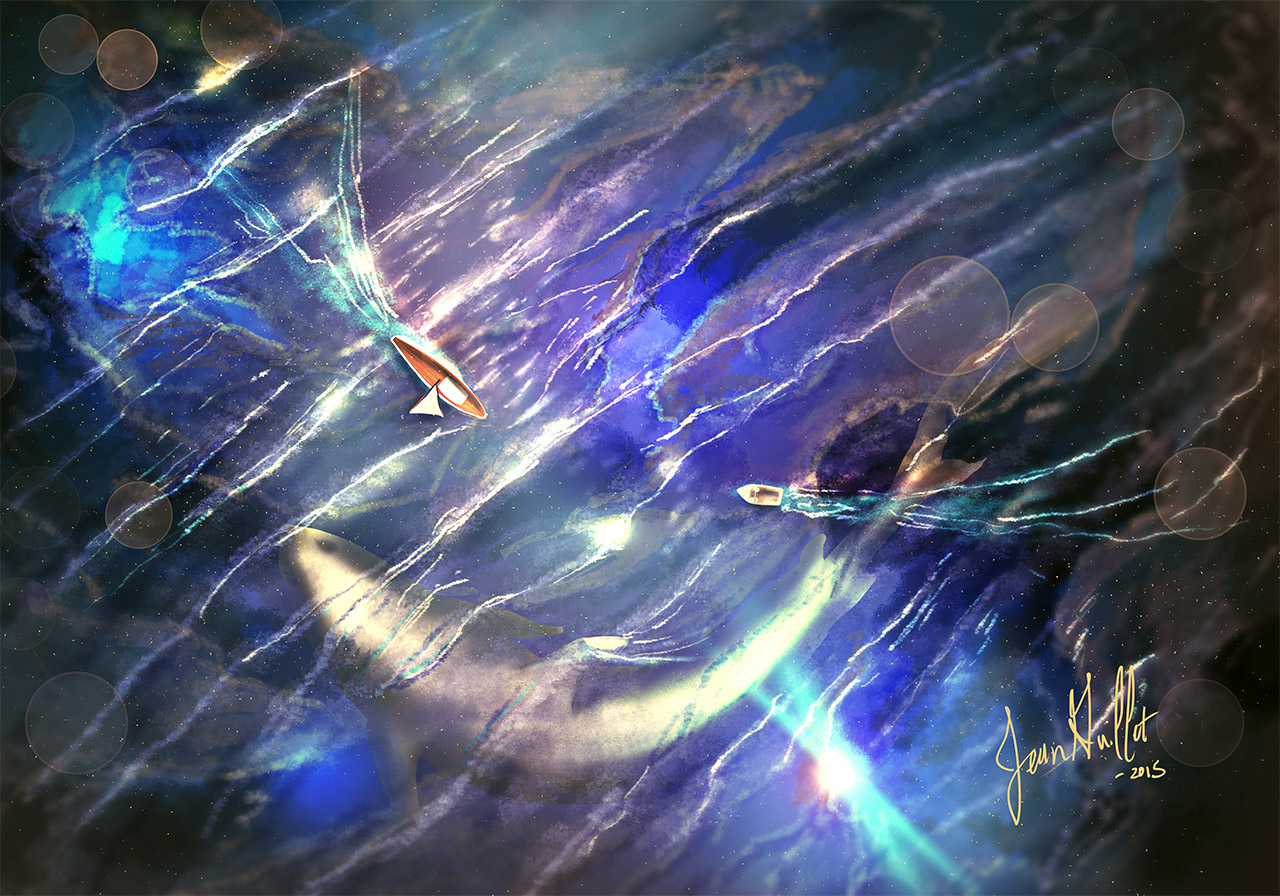
When I moved to the San Francisco Bay Area in 2008, I read an old book from the 1970's about the local legends of the region. It was full of thrilling stuff about pirates and bandits, gold discovered in your backyard (it happens), lost wandering ghosts, storms and seas, and a thousand whispers of exquisite detail about the land, and the people who inhabit it. I had arrived into paradise, fresh out of parched wanderings through the desert, and was overcome with expansive appreciation for the new climate, drowned in wonder for this land of the setting sun. There's nothing like contrast to make a fresh start in life seem positively magical.
So I set out to create my own legend about a lonely, disillusioned old man who lives on an island, just out of sight in the mists, endlessly sifting through the off-balance minds of every stereotyped California looney he can find, looking for someone who could face him down. Perhaps he's only searching for an intellectual challenge, but I suspect he's trying to justify his superior abilities, and understand why they mark him as destined for a particularly cruel and different world. Enter the woman, an older goddess than the fledgeling Silicon Valley's vultures who spin finance into a silken capitalist empire. She's as ancient a legend as any shrouded castle of an old-world fen, a carfax crossroads who resurrects the dormant shades of destiny that haunt the telepath. She embodies the stability that will challenge him, but only he can impart to her cold calculations the grace and compassion of an understanding heart.
As you might expect, the marriage of world-class young minds and aristocratic fingers dripping with molten gold is sort of a theme in Silicon Valley. It's a culture with deep roots in the atomic scare, with a ever-changing crop of vagabonds whose aspirations incline ideologically northwards and who take their aesthetic inspiration from Ikea's web store. Free shipping, and you don't ever have to leave your office. But children come, and children go, and in the hills surrounding the engineering plants, the farmers and iconoclasts have not forgotten that enemy titans lurk in the idyllic, verdant canyons, plotting alien schemes in incomprehensible speech. It's a patchwork zeitgeist, and it drives the engine of the West.
In Dumas' spectacularly funny revenge-fest, The Count of Monte Cristo, the hero is imprisoned on Chateau d'If, which is where they send those inconvenient people who are innocent. In Chateau Grief, criminal or not, everyone is guilty of something. So give 'em grief. They deserve it. And who moreso than Vespasian Eugene Xander, the telepath who could change the world, and doesn't?
Chateau Grief is my tribute to the San Francisco Bay Area's enchanting, unique culture.